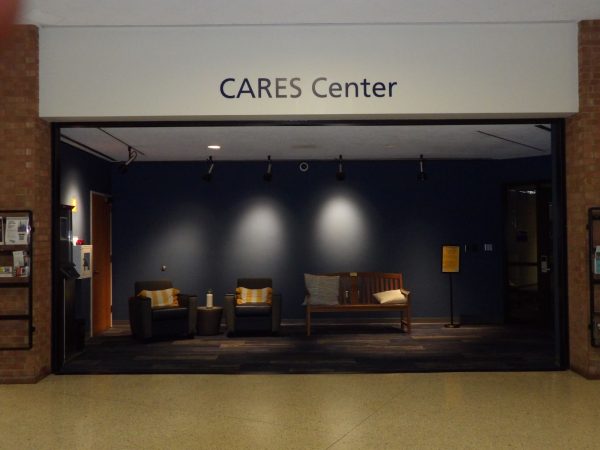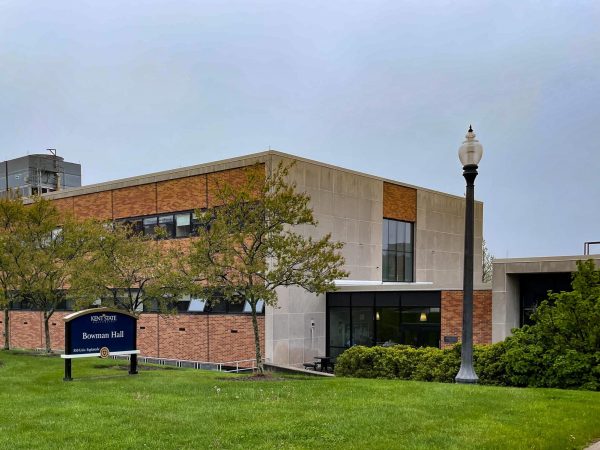Education students react to Chardon shootings
March 2, 2012
In the Chardon High School shooting Monday morning, three students were killed and 2 others were wounded, causing students and teachers everywhere to question what they would do if a similar situation were to happen again.
Jennifer Mitchkash, sophomore middle childhood education major, said as a future educator it is important for her to consider why the situation at Chardon occurred.
“It made me reflect on what has been done to bring awareness of gun safety and threats in schools,” Mitchkash said. “Were any red flags raised but not addressed?”
Caitlin McGrew, senior integrated social studies major, said the tragedy that happened at Chardon is an example of why students need to be accepting of their peers and watch out for each other.
“This situation shows us how important it is to teach compassion, respect and tolerance to our students,” McGrew said.
Joanne Arhar, associate dean of the College of Education, Health and Human Services, said each school is required by law to have its own crisis plan. It is also required for schools to file its floor plan with local firefighters and police officers in case of an emergency.
“It is the responsibility of our faculty to let students know that there is such a thing as a crisis plan and that it differs from school to school,” said Arhar. “And it is the school’s responsibility to inform our students about the local crisis plan.”
Martha Lash, associate professor in early childhood education, said Kent State offers the A.L.I.C.E program to all teachers, staff and students, and it is also specifically offered to students in the College of Education. A.L.I.C.E. stands for Alert, Lockdown, Information, Counter and Evacuation. The Kent State Police Department provides this program so school personnel can be prepared in the event of an active shooter or other emergency situation.
After faculty received the A.L.I.C.E training, the Early Childhood Education (ECED) faculty realized they needed to update students on safety procedures for not only their own safety, but also the future safety of the classrooms entrusted to them.
“We tried to give them a new perspective and knowledge base from which to create the safest environment,” Lash said.
She said beginning Fall 2011, all ECED students are required to receive the A.L.I.C.E training in addition to other safety training.
“This is all set in a philosophical approach that relationships and caring for individuals are the foundation and cornerstone to keeping our students and our children safe,” she said.
Kristina Turk, Kent State curriculum and instruction doctoral candidate and owner/director of a preschool, participated in the A.L.I.C.E training program Kent State last semester. She then shared what she learned with her current teachers and early child care program, as well as her two younger daughters.
One of her daughters is a freshman at Chardon High School and was in the cafeteria during the shooting. In an email sent from Turk to Lash Monday evening, she described her daughter’s experience at the school.
“Sad night as [she] witnessed two kids being shot,” Turk said. “She saw the shooter and a kid go down. She grabbed a friend and a stranger in shock. Kids were hiding under tables, and she screamed ‘my mom said don’t hide under tables you are an easy target: run.’”
Turk said in the email the information she learned impacted their safety.
Arhar said in addition to the A.L.I.C.E program, each school is required by law to have its own crisis plan.
“Our students who are doing field experience, practicum, internships or student teaching in a school learn about the crisis plan from the school in which they are working,” Arhar said.
She said to assist students with the trauma associated with events such as the Chardon shooting, faculty uses it as a “teachable moment” to help students analyze what happened and reflect on their own personal resources for dealing with traumatic events.
McGrew said it’s scary to think about being put in a dangerous situation, but it’s part of the job.
“As a teacher, your first priority is your students and their well-being and safety,” McGrew said. “It’s a fact that I may be put in danger someday [and have] to protect my students, but our students are worth protecting.”
For more information about the A.L.I.C.E program and to register for a session, students can go to http://einside.kent.edu/?type=art&id=93125.
Contact Hallie Pendergast at [email protected].
Contact Caitlyn Callahan at [email protected].























